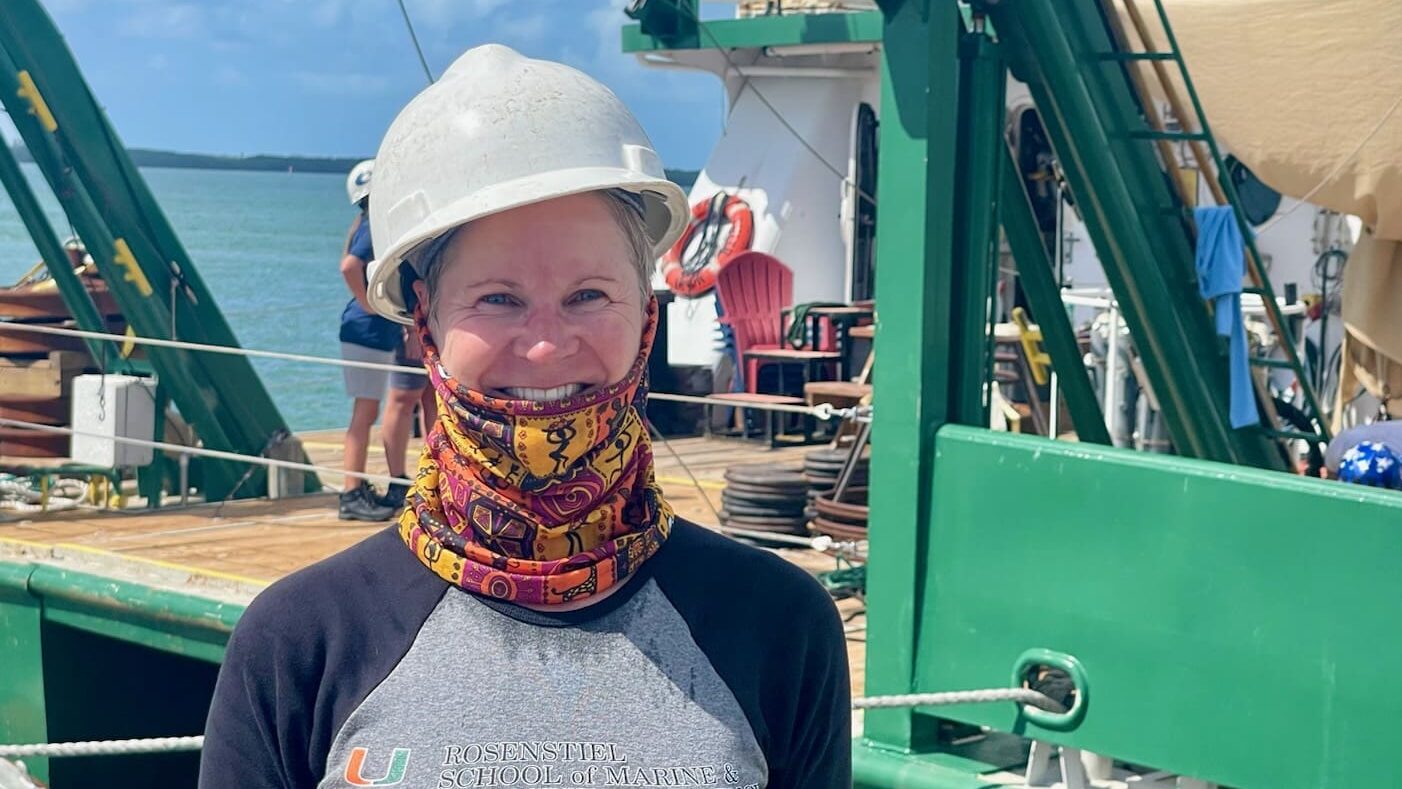The Gulf Stream is a mighty ocean river, a natural pump moving water and transporting heat from the Florida Straits up towards Canada and back down towards France
But as man-made climate change causes a vital ice sheet to melt, the current in this critical cycle could be slowing down, scientists say.
Join Our Mailing List
A group of seven researchers at the University of Miami’s Rosenstiel School led by Oceanography Professor Lisa Beal aim to take the Gulf Stream’s pulse. They are measuring speed, temperature and density over the next year to see whether changes in the Gulf Stream are contributing to sea level rise in Miami and Key Biscayne.
Sea level rise is uneven, and some locations can experience more than others.
Invest in Local News for Your Town. Your Gift is tax-deductible
“This is the most relevant research I’ve done in Miami,” said Beal, who has worked measuring currents off Africa.
“We’ll be able to capture exactly what’s going on in the ocean, for instance, at times of king tides, at times of hurricanes, at times of Miami flooding.”
Paloma Cartwright, is one of two graduate students who joined Beal on the research trip.
“Being part of this project is really special to me because it’s dealing with the Florida current and how that impacts sea level rise on Florida and Bahamian coastlines,” Cartwright said.
“I was born and raised in the Bahamas and have known firsthand the impacts of climate change my whole life.
The Gulf Stream is an important part of the Atlantic Meridional Overturning Circulation – or AMOC – that basically brings warm water north and cold water south.
A recent study predicted the Gulf Stream is going to collapse, spurring thoughts of a “Day After Tomorrow” scenario for the Northern Hemisphere.
Beal rejected the notion of collapse because the current is wind-powered. But she said it can be affected by man-made climate change.
As the Greenland ice sheet melts, it adds less dense water to the ocean. This is making it hard for the Gulf Stream to do its job of overturning the water in the North Atlantic.
“In order to overturn, you need to create dense water in the north that sinks,” Beal said. “If it doesn’t go down in the first place, then that overturning is going to slow down.”

Her team this month peppered the Florida Straits with nine “sea pies,” weights that will hold down instruments.that will measure heat, speed and mass.
“In this project, we’re trying to marry accurate sea level measurements at sea, not just kind of at the coast via tide gauges,” Beal said.
The instruments will send an acoustic pulse through the water column. That pulse goes up to the service and reflects off the surface of the water back down to the instruments.
“What’s really cool is the speed of sound in water varies with the heat content of the water,” Beal said.
The instruments also include a pressure sensor that can measure the mass of the Gulf Stream and a meter to measure the speed of the current.
All of the sea pies will be placed at depths of about 100 meters and collected in one year’s time.
The study is timely. This summer’s record ocean temperatures have bleached long-standing coral reefs in the Keys.
“I’m pretty alarmed,” Beal said. “There is so much evidence of global warming and it’s happening fast – faster than I ever thought it would. And I study this stuff. That’s pretty scary.”
JOHN PACENTI is the executive editor of the Key Biscayne Independent. John has worked for The Associated Press, the Palm Beach Post, Daily Business Review, and WPTV-TV.



